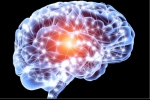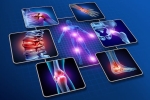Home »
Blog » Pain Management
| Stem Cell, PRP, Acupuncture in Queens & Long Island, New York
Pain Management | Stem Cell, PRP, Acupuncture in Queens & Long Island, New York
Understanding the science of chronic pain is pivotal to a patient’s recovery. Many pain patients won’t yet have been given the information they need about their chronic pain, so it becomes even more vital to educate them. The concept of central sensitization can be a tricky one to explain, but once a patient has this knowledge, they can take great strides forward in their recovery.
Read more
For people with a type of jaw joint disorder that results from loss of cartilage, the only treatments available address symptoms but do not repair the damaged tissue. Now, a new study of mice suggests stem cells already present in the jaw joint could be manipulated to repair it. The study, led by Columbia University Medical Center in New York, NY, is published in the journal Nature Communications. The authors describe how manipulating stem cells in the temporomandibular joint (TMJ) of mice with TMJ degeneration led the cells to repair cartilage in the joint.
Read more
If you’re one of the 100 million Americans suffering from chronic pain, you know how disruptive your symptoms can be, including keeping you from daily activities. The expert pain management team wants you to know that there’s a variety of treatment options for chronic pain available to improve your quality of life. Living with pain doesn’t have to be a way of life.
Read more
Coping With Withdrawal - Aside from treatments, there are other ways in which you can support yourself as you go through the withdrawal process. Support - You must have support, ideally personally as well as professionally. If you can reach out to loved ones and let them know what you are going through so that they can be there for you, this can be helpful. The withdrawal process can be taxing emotionally as well as mentally, so having people there to cheer you on and encourage you can make all the difference.
Read more
Osteopathy is a drug-free, non-invasive manual therapy that aims to improve health across all body systems by manipulating and strengthening the musculoskeletal framework. An osteopathic physician will focus on the joints, muscles, and spine. Treatment aims to positively affect the body’s nervous, circulatory, and lymphatic systems. Manual medicine means that both diagnosis and treatment are carried out with the hands.
Read more
Platelet-rich plasma injections are becoming more widely known for their success in helping to heal injuries and manage arthritis pain. The board-certified physicians offer platelet-rich plasma injections as part of a comprehensive treatment plan for patients managing chronic pain or healing after surgery. What is Platelet-Rich Plasma? Platelet-rich plasma (PRP) is a component of your blood that contains a high concentration of proteins. The plasma in your blood contains platelets that help your blood clot and promote cell growth, so it aids in the healing process.
Read more
Non-Pharmaceutical Options - As well as medication-assisted withdrawal, other options can help you through the withdrawal process. These treatments aim to make the withdrawal more manageable and comfortable for you and to teach you positive coping strategies. This is often known as psychosocial treatment, which can be defined as, “including cognitive and behavioral approaches and contingency management techniques”.
Read more
Osteopathic manipulative therapy (OMT) is a treatment method for a number of conditions. OMT is a hands-on technique that involves moving and manipulating a person’s muscles and joints to help diagnose, prevent, and treat certain conditions. OMT is a treatment option for chronic pain. Although its use appears to be relatively low overall, it is a common treatment for lower back pain.
Read more
When you’ve tried everything to find relief from persistent back, neck, or leg pain, but nothing seems to work, an epidural injection may be the solution that gets you back on your feet again. The Expert physicians provide patients with epidural injections to help alleviate chronic pain so they can get back to focusing on their life instead of their pain.
Read more
Medication-Assisted Treatment - For more severe withdrawal symptoms, medications will be prescribed to help reduce side effects and make withdrawal easier. This report from the National Institute on Drug Use explains that “Someone in recovery can also use medications that reduce the negative effects of withdrawal and cravings without producing the euphoria that the original drug of abuse caused.”
Read more
Love this Post? Spread the World






















